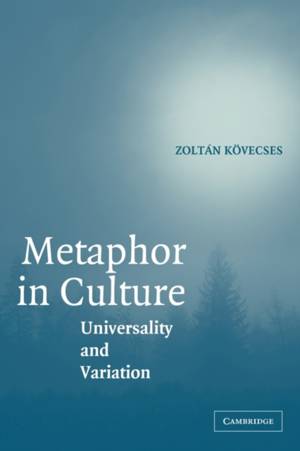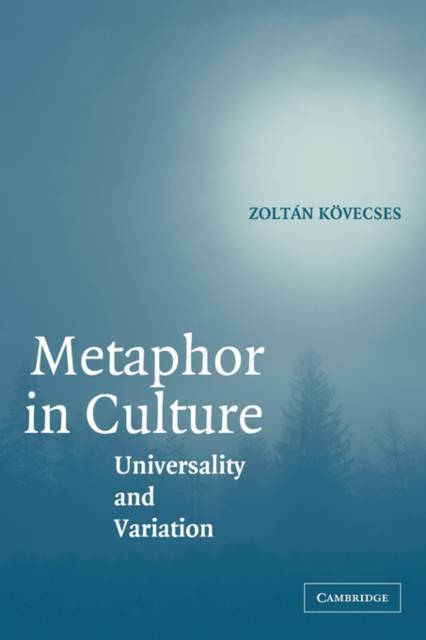
- Afhalen na 1 uur in een winkel met voorraad
- Gratis thuislevering in België vanaf € 30
- Ruim aanbod met 7 miljoen producten
- Afhalen na 1 uur in een winkel met voorraad
- Gratis thuislevering in België vanaf € 30
- Ruim aanbod met 7 miljoen producten
Zoeken
€ 61,95
+ 123 punten
Uitvoering
Omschrijving
To what extent and in what ways is metaphorical thought relevant to an understanding of culture and society? More specifically: can the cognitive linguistic view of metaphor simultaneously explain both universality and diversity in metaphorical thought? Cognitive linguists have done important work on universal aspects of metaphor, but they have paid much less attention to why metaphors vary both interculturally and intraculturally as extensively as they do. In this book, Zoltán Kövecses proposes a new theory of metaphor variation. First, he identifies the major dimension of metaphor variation, that is, those social and cultural boundaries that signal discontinuities in human experience. Second, he describes which components, or aspects of conceptual metaphor are involved in metaphor variation, and how they are involved. Third, he isolates the main causes of metaphor variation. Fourth Professor Kövecses addresses the issue to the degree of cultural coherence in the interplay among conceptual metaphors, embodiment, and causes of metaphor variation.
Specificaties
Betrokkenen
- Auteur(s):
- Uitgeverij:
Inhoud
- Aantal bladzijden:
- 336
- Taal:
- Engels
Eigenschappen
- Productcode (EAN):
- 9780521696128
- Verschijningsdatum:
- 4/12/2006
- Uitvoering:
- Paperback
- Formaat:
- Trade paperback (VS)
- Afmetingen:
- 164 mm x 229 mm
- Gewicht:
- 453 g

Alleen bij Standaard Boekhandel
+ 123 punten op je klantenkaart van Standaard Boekhandel
Beoordelingen
We publiceren alleen reviews die voldoen aan de voorwaarden voor reviews. Bekijk onze voorwaarden voor reviews.











